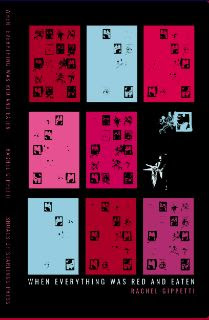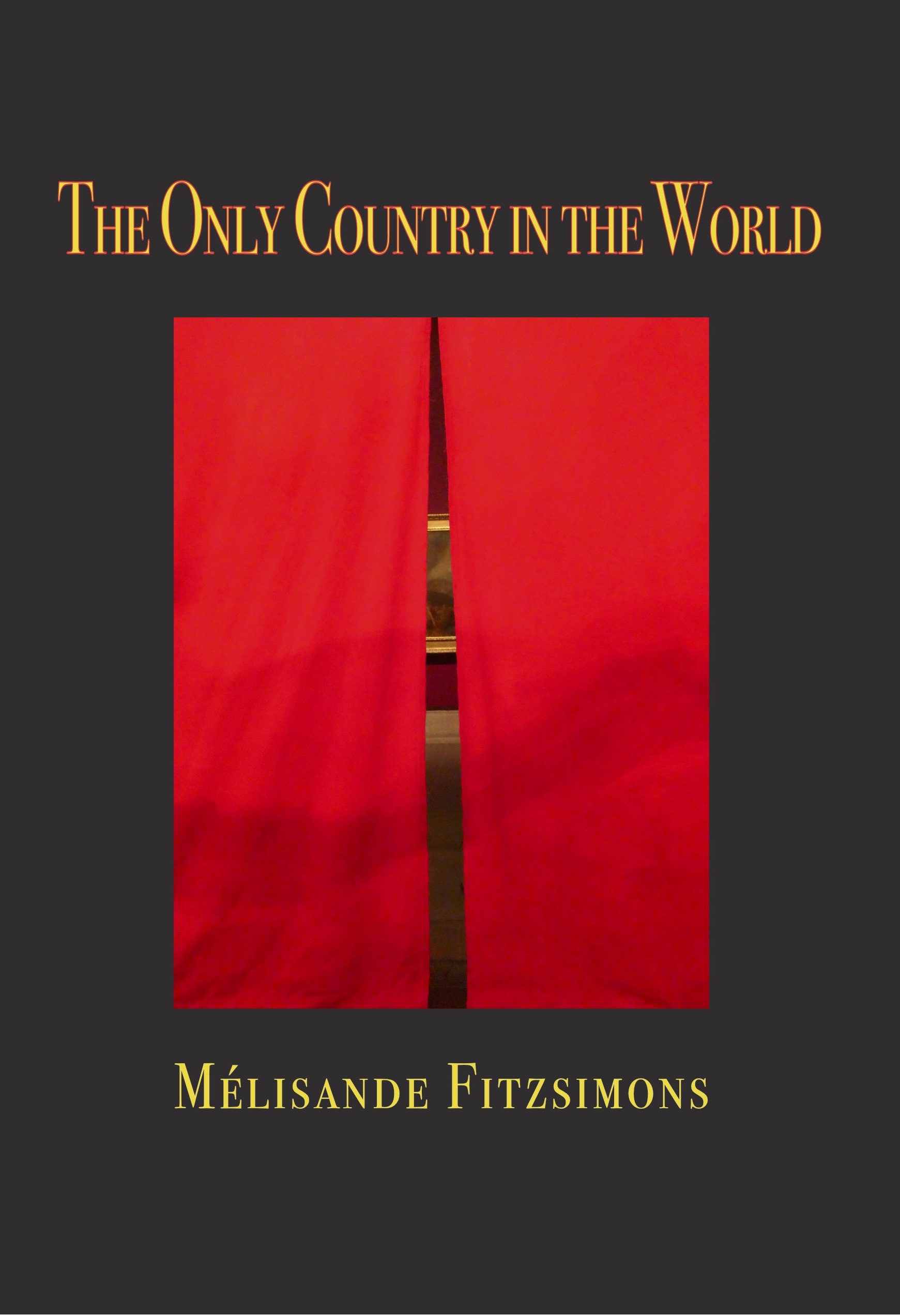267,000 PEOPLE live in the city of Plymouth, England, a relatively small number that belies the rich and diverse poetry scene there, as exemplified by four of the most outstanding contemporary Plymouth poets, the American Rachel Gippetti; Mélisande Fitzsimmons, originally from France; and the English poets Thom Boulton — the city’s former Poet Laureate — as well as Kenny Knight.
These four poets and their recent books are representative of the poetry currently being written in Southwest England and the country more broadly.

By Rachel Gippetti
Shoals of Starlings Press, 2023
37 pages
Boston, Massachusetts native Rachel Gippetti, who has been living in Plymouth, England since 2006, is an evocative poet of tenderness and wit. Her second book of poems, When Everything Was Red and Eaten, is a searching, accomplished collection, expressing timeless emotions through our fragmented, technology-glutted modern condition.
These poems, like “I love you all I love you best,” are quiet and interior, yet a striking restlessness pervades:
I learn to drive again and again
on manual on automatic
on and on
I love best walking alone
concrete anonymous. Could be
that building or the next, when
I don’t know where I am
Google Maps — hold me
in blue orb, shine a beam
into the white void.
Gippetti’s gripping use of enjambment and caesura, combined with her lightly handled language, guides poems that unceasingly explore physical and emotional states alongside themes of family and memory. Her deceptively spontaneous lyrics plumb depths of consciousness and experience.

By Mélisande Fitzsimmons
Aquifer Books, 2023
51 pages
Mélisande Fitzsimmons is a worldly, historical poet who writes in English and French. The Only Country in the World is a collection of pleasingly surreal poems that sweep across continents and centuries, dissecting our complex inheritance from history.
Her method is particularly fruitful when she focuses on the stories of Plymouth, England and Plymouth, Massachusetts, the starting point and destination of the Protestant Pilgrims in 1620. Though her subject matter here is often historic, Fitzsimmons’ language is always fresh and unexpected, as in “A European Description of the New England Natives,” which begins:
High-foreheaded, black-eyed, black-haired, last-named, deck up-
haired, broad-shouldered, land-
grabbed, brawny-armed, star-shot, long and slender-handed, out-
nosed, eel-poled, out-breasted
small-waisted, moon-feathered, lank-bellied, well-thighed, flat-
kneed, ghost-tepeed, handsome
grown-legged, small-feeted, well-formed, virus-wiped.
The perspective and persistent language here are surprising, yet Fitzsimmons leads the reader with authority as she presents researched historical moments through a poetic lens tinted with contemporary regret. She is a poet of keen intelligence and sensitive, ranging craft.

By Thom Boulton
Shoals of Starlings Press, 2021
61 pages
Thom Boulton’s poetry often highlights how myth and history permeate contemporary life and consciousness. Deftly in tune with the local landscape and culture in the region of Devon, the poems in Gebo confidently exist in uncertainty.
Boulton is an imaginative lyric poet who evokes the past in the present, searching for the seams that connect vivid contemporary settings with timeless moments often unhinged from logic, and existing in a space of surrealist joy. Here’s “Paper Plane:”
Riding through a rainbow
on a paper plane
how I would love to take you
from our spot, looking on
at the restless and measured
devout in the embrace
as we soar further to the edge.
Boulton’s poetry takes readers on a journey through the present and the past on flights of imagination and and lyric language. His poems feel both familiar and unexpected.

By Kenny Knight
Shearsman Books, 2022
85 pages
Kenny Knight writes compelling and plainspoken lyrical narratives, especially in his collection Love Letter to an Imaginary Girlfriend, which searches through his own history as a poet as well as the collective history of England.
Many of the poems in this collection fill several pages, with few stanza breaks and a vertical thrust that pulls the reader through masterful narratives connecting past and present.
“It was ducks not blackbirds,” an origin story for the poet, begins:
It was ducks not daffodils
or five pound notes that did it for me
thunderstorms in the teaching room
and a mad dash home
along Coombe Park Lane.
The streets were dry and I remember
crossing three roads without looking
but there weren’t so many cars back then
there were some but not as many
as there were cats
in that book by T. S. Eliot
which I read some years later.
Cats lived out between the fields
you could see their eyes at night
on the road to Modbury
or sitting on windowsills,
looking wise, looking intellectual
like Egyptian professors.
Cats working undercover,
infiltrating our lives
living rooms and sofas.
Knight’s language is stately yet colloquial, crafted yet contemporary. His poems are seemingly straightforward and increasingly captivating as they express unexpected insights into personal and public life.
— Stephan Delbos
